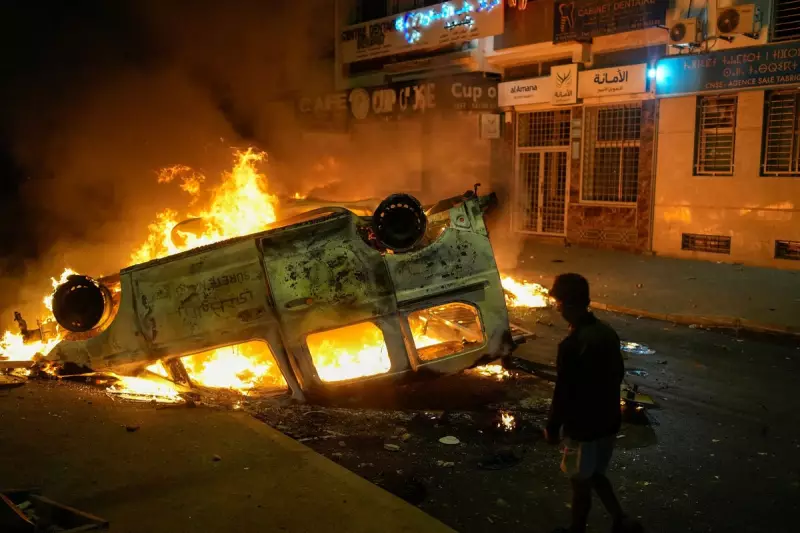
Morocco is witnessing a wave of social unrest as widespread protests against government austerity measures and soaring living costs have erupted across the kingdom, with several demonstrations descending into violent confrontations with security forces.
Economic Grievances Fuel Public Anger
The protests, organised by the Moroccan Association for Human Rights (AMDH), have drawn thousands of citizens into the streets of major cities including Casablanca, Tangier, and Marrakesh. The demonstrations represent a significant challenge to the government as public frustration mounts over economic hardship.
At the heart of the discontent lies the government's decision to slash subsidies on butane gas and petrol—a move that has triggered immediate price increases for essential goods and transportation. Many Moroccans, already struggling with unemployment and economic uncertainty, view these measures as an unbearable burden on household budgets.
Violence Erupts in Multiple Cities
What began as peaceful demonstrations has escalated into violent clashes in several locations. In the northern city of Tangier, protesters blocked major roads and set tyres ablaze, while in Casablanca—Morocco's economic hub—police deployed tear gas to disperse crowds.
Local reports describe scenes of chaos in multiple neighbourhoods, with security forces engaging in running battles with protesters. The intensity of the clashes has raised concerns about the potential for further escalation if tensions remain unresolved.
Government Response and Political Context
The protest movement emerges against a complex political backdrop. While the government has defended its economic reforms as necessary for long-term stability, opposition groups and human rights organisations argue that ordinary citizens are bearing the brunt of these policies.
The AMDH has condemned what it describes as excessive force used by security personnel during the demonstrations, calling for an independent investigation into the conduct of police operations.
Regional Implications and International Attention
As North Africa's second-largest economy, Morocco's stability carries significant regional importance. The current unrest echoes similar protests that have occurred across the region in recent years, where economic pressures have frequently translated into social upheaval.
International observers are closely monitoring the situation, particularly given Morocco's strategic partnerships with European nations and its role as a regional economic hub. The prolonged nature of these protests could have implications for foreign investment and regional stability.
What Comes Next for Morocco?
The government faces a delicate balancing act—maintaining its economic reform agenda while addressing legitimate public concerns about living standards. How authorities manage this crisis will likely determine whether the protests subside or intensify in the coming weeks.
With no immediate resolution in sight, many Moroccans await concrete government action that might address their economic grievances and restore social calm to the kingdom.





